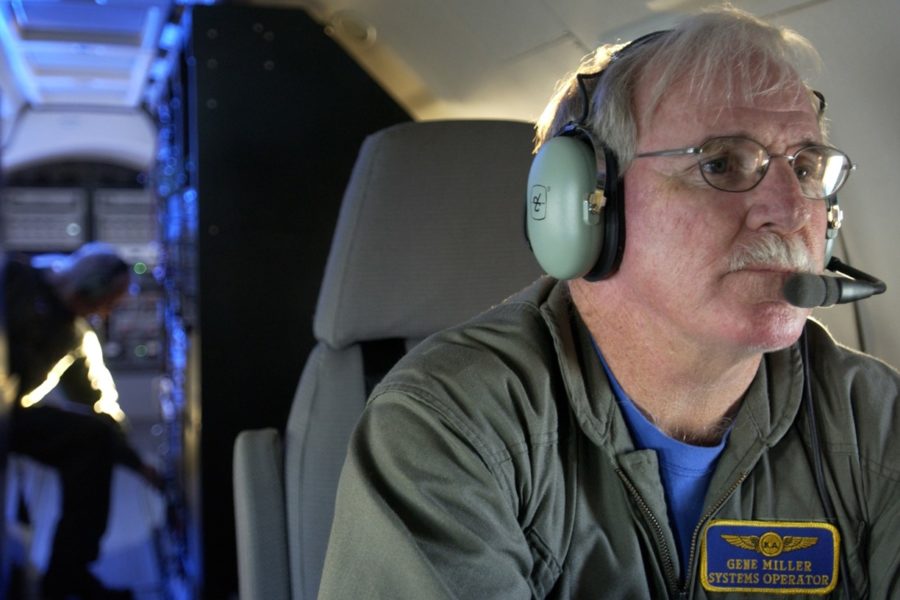For veterans of the U.S. Air Force and other military branches, it’s been easy to find a home at King Aerospace, a provider of contractor logistics support and other services. The mission, after all, is similar.
“The Air Force Core Values are Integrity First, Service Before Self, and Excellence in All We Do. That’s the same way King Aerospace operates,” says Mike Riley, the company’s contracts manager, a 22-year veteran and an Air Force Academy graduate. “We ask what we all can do collectively to help our customer achieve their goal as quickly, efficiently and cost-effectively as possible. That’s our goal in everything we do.”
About one-third of the company’s 450 employees are veterans. Kay Roby-Bragg, a 25-year employee, is one. She found it a smooth transition from Air Force service as an avionics technician to becoming an airborne radar operator with King Aerospace.
“Jerry is very passionate about God, family and country. It’s easy to work at King Aerospace when you know his heart is in the right place,” Roby-Bragg, now special projects manager, says of Jerry King, chairman and founder.
All of King Aerospace’s operations draw upon core principles including quality in everything (no excuses) and mutual respect. They foster a culture of accountability based in servant leadership.
“For veterans, it’s a way for them to extend the values and things they learned in the military into the commercial world,” King says.
“I don’t know anyone at King Aerospace who doesn’t believe in the cornerstone principles on which this company was founded,” Riley says. “And that’s framed by In God We Trust. It distinguishes us as a company. It truly makes us better.”
Agile, responsive and cost-effective
Veterans found another key difference at the family-owned company led by King and his son, Jarid, its president.
“In the military, you had a very structured environment,” says Gene Miller, a 20-year Air Force veteran who spent 15 years at King Aerospace and recently came out of retirement to help launch its Arkansas facility. “When you get to King, it’s a proactive approach. You are allowed to make the product better. They promote that. That’s what I like.”
“You don’t have the red tape, and it’s more efficient. You’re not just a number, but you’re held accountable,” says Roby-Bragg, who like Miller worked for the company in the E-9A surveillance program at Tyndall Air Force Base.
“Part of why we’re so successful is we’re flexible and responsive to execute the mission,” Riley says. “We have the best people in our functional groups. And when a challenge presents itself, we jump on it.”
Having served with the Defense Contracts Management Agency, Riley is familiar with big defense contractors. “We are more agile and responsive than those big, bureaucratic companies. We can execute in the same day what takes those companies three to four weeks. The warfighter, the Department of Energy, the Coast Guard, any customer, King supports them in good faith.”
“Others see a government contract as just taxpayer money, but Jerry watches it like it’s his own money,” Roby-Bragg says. “Getting the most bang for the buck, that’s our biggest differentiator. It’s about wanting to make a difference instead of a dollar.”
And it’s about enjoying work.
“In the Navy, we always said, if you’re not having fun, you’re not doing something right,” says Greg Mitchell, vice president of government services and a former U.S. Navy captain. “It’s the same at King Aerospace. We do serious work but find joy doing it. Our customers appreciate our open-and-honest process – and our can-do attitude.”
Serving the military and government
King Aerospace offers contractor logistics support (CLS) as a prime contractor or subcontractor. It has extensive experience supporting the Air Force, Army and Navy/Marine Corps and agencies including the Departments of Energy, Homeland Security and Justice.
It offers maintenance and logistics support for special-mission aircraft, primarily military derivatives of Boeing, De Havilland and Textron-Beech aircraft. The work occurs at bases worldwide and at facilities in Ardmore, Oklahoma, and Bentonville, Arkansas. The company’s Air Force work has included supporting the E-9A surveillance program at Tyndall Air Force Base, painting VIP aircraft that transport dignitaries worldwide, and performing modifications to special mission aircraft.
Accolades include being named U.S. Air Force Contractor of the Year (twice), U.S. Army Contractor of the Year and Small Business Administration Regional Outstanding Prime Contractor. Its Albuquerque, New Mexico-based Department of Energy team was honored again this year for outstanding performance.
The awards are nice but Jerry King, who grew up in a military family, is humbled by a more personal recognition: an Air Force member presenting their unit badge after their aircraft received work. “They ripped their patch off their arm and said, ‘Mr. King, would you take this from me?’ That’s about as good as it gets in the military. That is the greatest compliment you can have.”
An approach that’s, pleasantly, ‘not normal’
Robert “Woody” Nolan, president of Denmar Technical Services, finds King Aerospace’s quality, value and culture distinctive.
“Their business arrangements and practices are simple and understandable. King gives you what you contracted for, and that’s what I love about them,” said Nolan, a retired brigadier general and Air Force Academy graduate. “Their leadership team is easy to contact. They answer the phone. They have integrity, and the relationship is important to them.”
“Before we went under contract, we went and visited them. During that process, we got to meet Jerry and Jarid King. These guys want to know exactly what you want done, and they want to make you happy,” says Nolan, whose company supports the aviation industry.
“I’ve recommended King to others in the business. I tell them, ‘They’ll give you the best product for the money.’ I’m very comfortable staking the reputation of my company on their company. That is not normal,” Nolan says.

